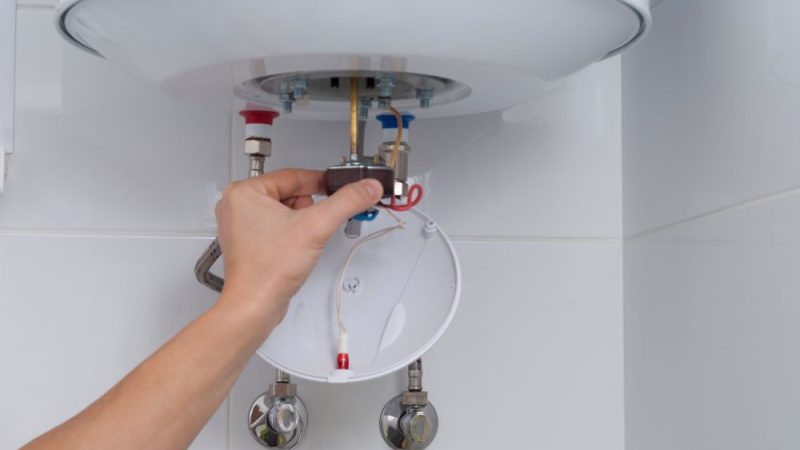Tankless Water Heaters vs. Storage Tank Water Heaters

Picking between a tankless water heater and one with a storage tank is big. A lot of homes use gas or electric power to make their water hot. Some even tap into sun or earth heat for better use.
A regular tank heater keeps hot water ready in its belly, heating cold stuff as it comes in because warm things go up. But now think of not having that big old tank, going for something new that heats your water right when you need it, the smart pick dubbed ‘tankless.’ Ready to install one?
Tankless vs. Storage: The Basics
A tankless water heater, unlike its storage counterpart, doesn’t hold hot water in a tank. Instead, it heats up the cold incoming water right when you need it. This is achieved through either gas or electric power heating elements that work instantly as soon as you demand hot water by turning on a tap or shower.
It’s especially handy for homes using natural resources like gas and electricity efficiently. Storage tanks keep a large volume of heated water ready to use but must maintain this temperature constantly, which can increase energy usage over time. These require more space due to their bulky size compared to the compact design of most tankless units suitable even for small homes.
While every home depends on efficient ways to heat up their daily-use water, be it solar-powered techniques or other kinds, understanding what type suits your specific needs becomes vital.
Installing Tankless Water Heaters
Opting for a tankless water heater when it’s time to replace an old unit can lead to significant energy savings. The US Department of Energy highlights that households using under 41 gallons daily may save up to 34% in energy. Even homes with higher demands, around 86 gallons per day, could see efficiency improvements by up to 14%.
Unlike traditional storage tanks heated constantly and suffering from standby heat loss, tankless models activate only on demand. This approach eliminates the waste seen in conventional systems but might struggle with simultaneous hot water needs across multiple taps. Initial costs are higher for tankless options. However, they offer long-term savings and reduced space usage compared to their bulky counterparts, with capacities ranging from 20-80 gallons.
Efficiency and Cost Comparison
Switching to tankless water heaters involves more than a simple replacement. Consumer Reports study reveals this choice requires significant plumbing changes and, at times, gas line or electrical upgrades due to increased demands. Despite the convenience of immediate hot water with storage tanks, tankless models promise energy savings by heating water on demand rather than continuously maintaining a reservoir of hot water.
However, this efficiency comes with initial hurdles such as higher installation costs, typically $800 to $1,500, and potential delays in getting hot water depending on incoming groundwater temperature. The research compared both electric and gas versions across brands like Bosch and Rheem against traditional storage tanks highlighting that recouping these upfront expenses through lower operating costs could take time.
In the debate of tankless versus storage tank water heaters, both have their merits. Tankless units offer endless hot water and save space, making them ideal for smaller homes or those seeking efficiency. Conversely, storage tanks are more budget-friendly upfront and simpler to install, appealing to many homeowners.
Front Range Water Heater and Excavation understands these needs well. They help decide what suits a home best by considering factors like size, usage need, and cost over time. Making an informed choice ensures comfort and savings in the long run.







